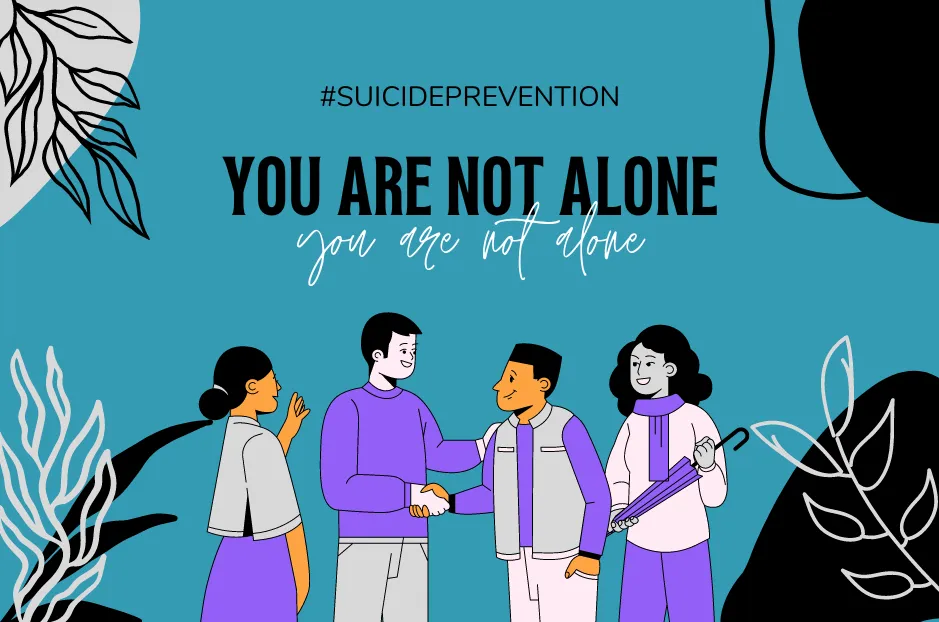General Inquiries: (587) 333-6349 - info@sanostate.com



Suicidal Thoughts - You Are Not Alone
“Let's not forget that when we are emotionally low, our thoughts are not very rational.”
Charlie had immigrated to Canada to provide a better future for his wife and children. The plan was for him to earn enough money to send back home until they saved enough for flights for his wife and children. Shortly after arriving, he injured himself badly at work and lost his ability to continue working. He was placed on long-term disability and his life became little more than going from one doctor’s appointment to another. The pain in his leg was so intense that he could barely sleep or focus. While driving home from yet another appointment, the thought came to his mind that if he just drove into a bridge, he would end his suffering. At that point he felt a rush of adrenaline and hit the accelerator to the floor. His heart pounded as his speed increased to 120kmph… 140kmph… 160kmph… Just before reaching 200 km per hour, his phone rang and startled him. He looked at his phone and saw it was his son calling from his home country. Charlie decided to answer the phone call. He brought his car to a complete stop and answered the phone to hear his son saying “Daddy, I miss you. When can I see you again? Are you doing okay in Canada?”
Charlie said he sat there on the side of the highway and sobbed. “How selfish was I being? Who would take care of my family?” He recognized that taking his own life would hurt many other people. It was in a short moment of anger, distress, and pain that he impulsively decided to end his life. Let’s not forget that when we are emotionally low, our thoughts are not very rational. In my experience, clients that have survived a suicide attempt live to be grateful that they survived.
At our clinics, we have been noticing a significant increase in the number of people that are experiencing suicidal ideation or have attempted suicide in the last few months. Although we can’t be sure exactly why this seems to be the case, there are some things that we do know.
The pandemic has its effects. Early in the pandemic, we generally saw a decrease in suicide. This was expected, as that is the pattern we often see in times of pandemic, famine, and war. It may seem counterintuitive since we also see increases in anxiety and depression during a pandemic. One theory is that of social cohesion, with people rallying together for the greater good to end the pandemic. But as a pandemic continues, there can be an increase in division among people and their worldviews. It is only later that we will see an increase in deaths by suicide, which appears to be happening now. It is hard to know for sure where we are currently because it takes time to collect, analyze, and publish data.
But before the pandemic hit, suicide rates had been increasing. So, there must be more factors at play. Regardless of the reasons, here are some considerations:
Risk factors
Previous attempts
History of mental illness, other serious illnesses, or chronic pain
Legal problems
Job loss or financial problems
Substance misuse
Impulsivity or aggressive tendencies
Bullying or social isolation
Access to guns or other lethal means of suicide
Protective factors
Reasons for living (family, friends, pets, etc.)
Success at school, work, etc.
Positive self esteem
Stress management skills
Having future plans
Support from others, feeling connected to others
Cultural or religious objections to suicide
If you suspect someone you love might be considering suicide, here are things you can do:
Talk to them! Spend time with them! Connect!
Ask them if they are having thoughts of death or suicide. If they have been, ask them if they have a plan.
Let them know you want to help.
Create a safety plan to include removing hazards and having a way to reach out when they might need it
Call 2-1-1 (24/7. Confidential. Free. Crisis line to connect you to the right agencies and services in Alberta.)
Seek out professional help. We are here to help, please call 587-333-6349 or click here.💙
Refrences
Bastiampillai, T., Allison, S., Brailey, J., Ma, M., Chan, S. K. W., & Looi, J. C. L. (2021, June 18). Pandemics and social cohesion: 1918–1920 influenza pandemic and the reduction in US suicide rates. Psychiatrist.com. Retrieved October 21, 2022, from https://www.psychiatrist.com/pcc/depression/suicide/pandemics-social-cohesion-1918-1920-influenza-pandemic-reduction-us-suicide-rates/
Bastiampillai, T., Allison, S., Cubbage, J., Nestadt, P., & Sharfstein, J. (2022, April 26). US suicide rates and impact of major disasters over the last century. Psychiatrist.com. Retrieved October 21, 2022, from https://www.psychiatrist.com/pcc/covid-19/us-suicide-rates-impact-major-disasters-last-century/
General Inquiries:
Our Locations:
Additional Resources:
About Us:
We strive for excellence in psychological treatment. We are committed to providing professional, caring, innovative, and research-based services.
© 2024 Sano State Taylored Psychology. All Rights Reserved.

